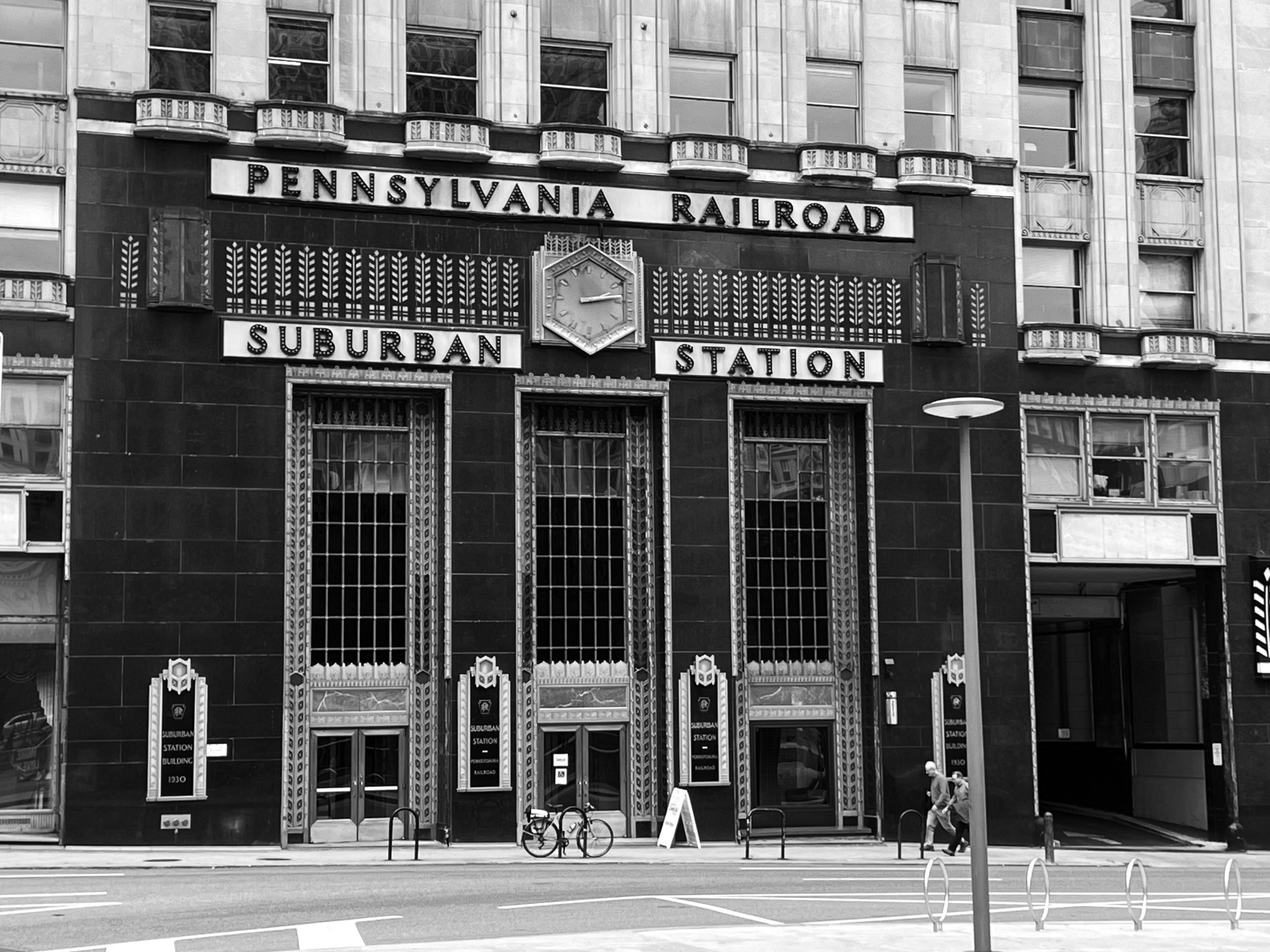June 17, 2024
The drive for economic development in the mid-to-late-19th century led to the creation of railroads, our nation’s first mega-corporations, and created a sense of railroad exceptionalism in commerce and the law. The reality that certain entities are “too big to fail,” which is often inescapable in turbulent economic times, can be traced back to the rise and fall of railroads. Parallels can be drawn between railroads and big tech, banks, automobiles, and pharmaceuticals. This spring, a class of Temple Law students had the opportunity to explore the influence that railroads had on large corporations and the American legal system.
The course relied heavily on local Philadelphia history, covering the story captured in The Wreck of the Penn Central by Joseph R. Daughen and Peter Binzen. The merger of the Pennsylvania Railroad and the New York Central created the Penn Central Railroad in 1968. At the time, it was the largest merger in history. The merger failed spectacularly and quickly. In an era preceding the Bankruptcy Code, what was once the largest merger became the largest bankruptcy within two years.
Students studied the almost-decade-long bankruptcy proceedings and resulting legislation, the Regional Rail Reorganization Act of 1973 (“3R Act”), the Railroad Revitalization and Regulatory Reform Act of 1976 (“4R Act”), and the Staggers Rail Act of 1980. Recognizing the critical importance of railroads to the country, the courts and the legislature saved the railroads, in part through the creation and, ultimately, privatization of Conrail.
Co-taught by bankruptcy scholar Professor Jonathan Lipson and former Conrail General Counsel and current Adjunct Temple Law Professor Jonathan Broder, the tag-team approach offered students a 2-for-1 bargain, something rarely seen in contemporary higher education. Entering the class with a passion for railroads, I affectionately referred to the class as Railroad Law. The reality, however, was that by exploring the influence that railroads had in evolving the legal, regulatory, and economic systems, Professors Lipson and Broder taught students much more than laws about railroads. Students learned about wide-ranging topics including bankruptcy, securities, environmental and land use, constitutional, labor, transportation, technology and industrial change, and the interaction of public and private actors.
In addition to the typical law school course structure of reading and lecture this course employed creative instruction methods designed to both teach railroad legal history and preserve it. Together the students and professors took a late semester fieldtrip around Philadelphia to observe, first-hand, how railroad infrastructure has been transformed and maintained over the decades since the railroads’ decline. Designed as a writing seminar, each student had the opportunity to select a topic influenced by railroads and expand their knowledge by authoring a research paper.
Professor Broder’s experience and relationships were invaluable in the classroom and in the preservation of Conrail history for generations to come. The students were offered the experience of meeting key leaders in the reorganization of Penn Central following its bankruptcy and the creation of Conrail. To cap off the semester, Professor Broder invited a panel of guests to share stories and answer student questions about the challenges in the Penn Central bankruptcy proceedings and the evolution of Conrail. The panel included:
- John DePodesta, former Reorganization Counsel for the Trustees of the Penn Central Railroad and Conrail’s first General Counsel, who shared stories from his experience in the reorganization;
- Larry Shiekman, former Troutman Pepper Partner, who offered his experience of working as outside counsel for Conrail and managing many cases requiring novel interpretations of law; and
- Dennis Arouca, former Vice President Labor Relations for Conrail, who spoke about the impact of labor in the reorganized Conrail.
The creative approach left each student much more knowledgeable about the influence railroads have had on the American legal system and inspired at least one student to share his story with the readers of the 10-Q!
Stay tuned for a new Temple 10-Q podcast, hosted by Professor Broder with guest Dennis Arouca.
